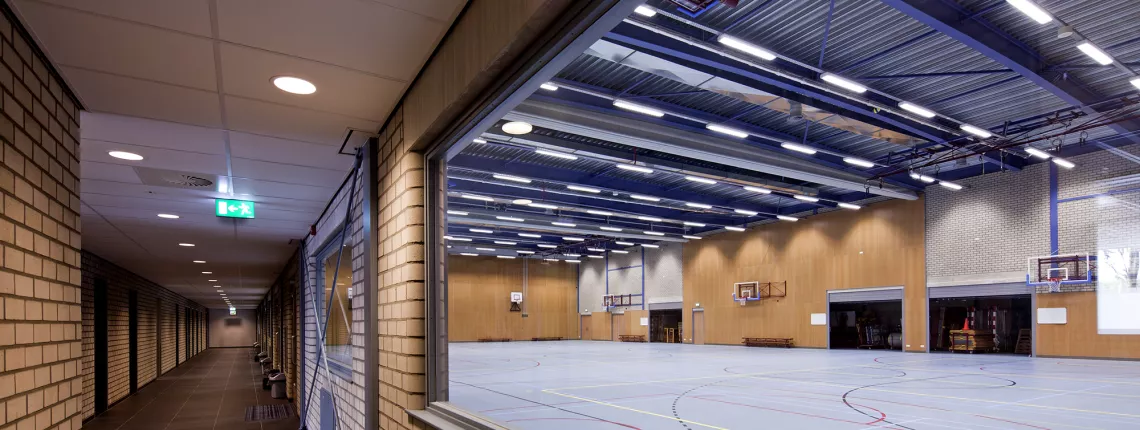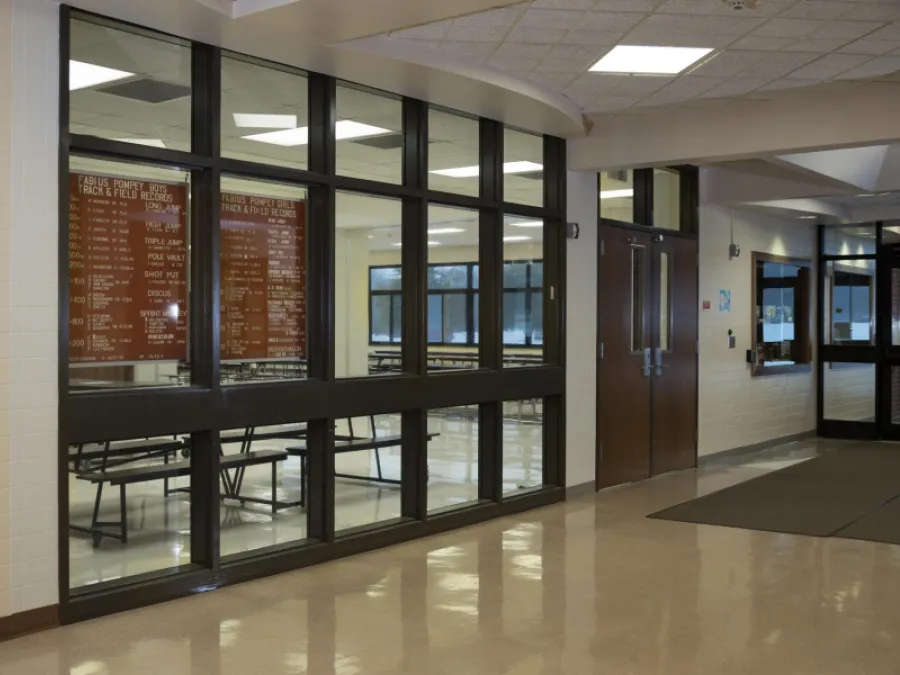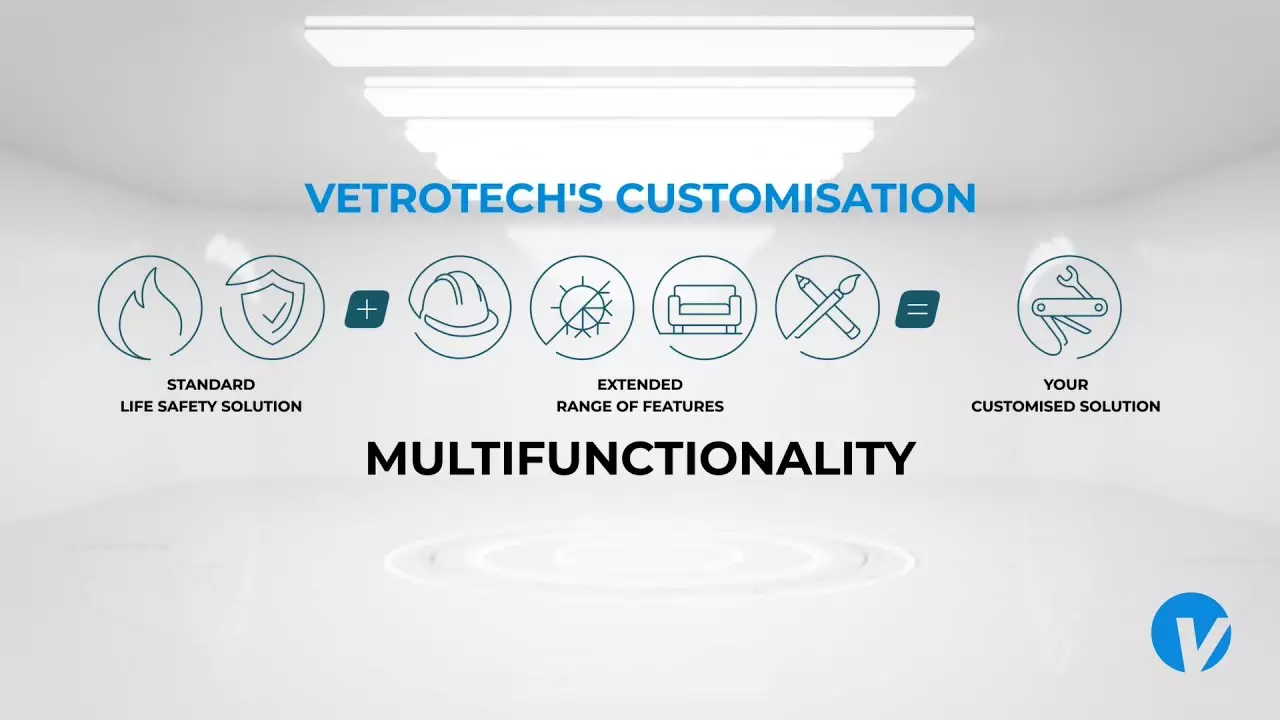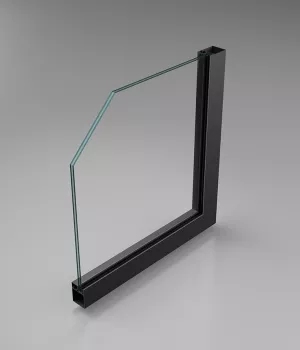Double Glazed vs. Single Glazed Windows–Key Differences and Benefits

Windows do more than let in light—they shape how buildings feel, perform, and protect. As the shift towards energy-efficient, quieter, and safer spaces grows, double glazed windows are becoming the new standard. But how do they truly compare to single glazed ones? Let’s break down the key differences to help you choose smarter, and understand how Vetrotech solutions go even further, with built-in fire, blast, and burglar resistance wrapped in refined European design.
What are Single Glazed Windows?
A single glazed window features just one pane of glass set into the frame. It's the most basic and traditional type of glazing and was widely used before advancements in energy-efficient technologies became mainstream.
These windows are typically found in older homes, budget constructions, or outbuildings such as sheds and garages. While they offer a minimal upfront cost, they are known for:
- Poor insulation, making indoor temperature harder to maintain
- Higher likelihood of condensation and associated damp issues
- Little to no sound insulation
- Minimal protection against intrusion or breakage
They still appear in heritage structures bound by restoration guidelines, regions with mild climates, and buildings with low or temporary usage.

What are Double Glazed Windows?
Double glazed windows feature two panes of glass separated either by a vacuum or a layer of air or inert gas, such as argon. This gap acts as a barrier that slows down heat transfer and dampens external sound.
Now a common standard in modern residential and commercial architecture, they are favoured for their:
- Thermal performance in both hot and cold climates
- Noise-reducing capabilities
- Increased structural integrity and safety
They are especially effective in properties close to highways, airports, and urban centres or buildings prioritising environmental performance.
Double Glazed Windows vs. Single Glazed: A Clear Comparison
|
Feature |
Double Glazed Windows |
Single Glazed Windows |
|
Thermal Insulation |
Excellent insulation prevents both heat loss and gain, leading to a stable indoor climate and reduced HVAC usage. |
Poor insulation causes significant temperature fluctuations indoors. |
|
Soundproofing |
Superior acoustic performance; significantly reduces noise pollution from outside. |
Minimal noise control; sound easily penetrates the single pane. |
|
Condensation Control |
Reduced condensation thanks to the insulating gap, protecting walls, paint, and furniture. |
High risk of condensation, especially in humid or cold environments. |
|
Energy Efficiency |
Leads to lower energy bills by maintaining consistent indoor temperatures; ideal when combined with Low-E coatings. |
Leads to higher heating and cooling costs due to thermal inefficiency. |
|
Security |
Difficult to break due to multiple panes and laminated glass options; supports burglar resistance. |
Easily breakable, posing security concerns. |
|
Initial Cost |
Higher upfront investment, but long-term savings in energy and maintenance justify the cost. |
Lower initial cost, but higher long-term expenses due to inefficiency. |
Where Double Glazed Windows Truly Shine
Let’s explore where they make all the difference:
Homes
- Maintains comfortable indoor temperatures year-round
- Improves privacy and reduces street noise
- Aligns with sustainable home design and lowers the carbon footprint
Offices & Commercial Buildings
- Enhances productivity with better acoustic environments
- Supports energy certifications like IGBC and LEED
- Matches modern, minimalist architectural styles
Hospitals & Healthcare Settings
- Ensures a peaceful healing environment
- Reduces moisture buildup for improved hygiene
- Offers a stable indoor climate vital for patient comfort
Retail Spaces & Showrooms
- Bright and welcoming while maintaining thermal performance
- Shields interiors from UV damage
- Adds strength and safety without compromising aesthetics
At Vetrotech, double glazed window solutions come not just with thermal insulation but also extra layers of safety and acoustic control for truly peaceful spaces.
Key Benefits of Double Glazed Windows from Vetrotech
- Fire-rated safety options like CONTRAFLAM 120 can be used as a DGU for external applications offer up to 120 minutes of integrity and insulation without compromising its fire performance.
- Custom glass aesthetics: patterns, prints, tints, and ultra-clear options for design-led spaces.
Things to Consider Before Upgrading
1. Initial Cost vs. Long-Term Savings
Think beyond the purchase price. How much will you save in utilities over the next 5, 10, or 15 years?
2. Building Age and Structure
Older structures may require additional framing or reinforcement to support double glazed windows.
3. Frame Material Options
Steel: Maximum durability and structural strength
Aluminium: Sleek, modern, and low maintenance
Timber: Classic charm and great thermal insulation
4. Safety, Fire Resistance, and Multifunctionality Needs
For high-risk buildings, consider options like fire-rated windows, burglar-proof glass, or glass that can withstand blasts and bullets.
A Future That’s Clearer and Stronger
Whether you're building your dream home, revamping a hospital wing, or upgrading a retail front, investing in the right windows can redefine your space.
Double glazed windows offer more than thermal comfort; they deliver energy efficiency, safety, and peace. Compared to single-glazed options, they clearly stand out in performance and long-term value.
For those seeking the next level of glazing technology, Vetrotech offers tailored, certified, and stunningly designed solutions to match every architectural vision.


